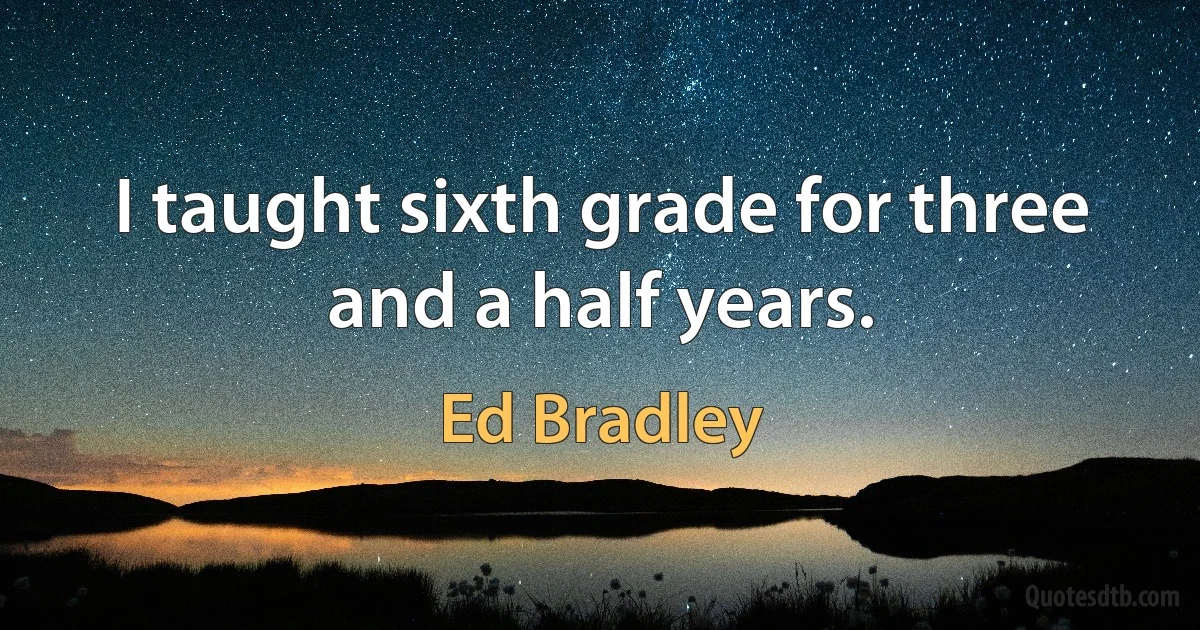Sixth Quotes - page 4
The sixth pre-Christian century-the miraculous century of Buddha, Confucius and Lâo-Tse, of the Ionian philosophers and Pythagoras-was a turning point for the human species. A March breeze seemed to blow across the planet from China to Samos, stirring man into awareness, like the breath of Adam's nostrils. In the Ionian school of philosophy, rational thought was emerging from the mythological dream-world. ...which, within the next two thousand years, would transform the species more radically than the previous two hundred thousand had done.

Arthur Koestler
At the present time we are the sixth air Power in the world. But every State is rapidly expanding its air force. They are all expanding, but much more rapidly than we are doing. It is certain, therefore, that.. in 1936...we shall have fallen further behind other countries than we are now in air defence. ... If you extend your view over the [Government's] five-years' programme I believe it is also true to state that, having regard to the increases which are being made by other countries and which are projected, even if the whole programme is carried out, at the end of the period...we shall be worse off in 1939 relatively-it is relativity that counts in these matters-than we are now. ... Yet even for this tiny, timid, tentative, tardy increase of the Air Force, to which the Government have at length made up their mind, they are to be censured by the whole united forces of the Socialist and Liberal parties here and throughout the country.

Winston Churchill
Unless we act anew, with dispatch and resolution, we shall sanction a sad and sorrowful course for the future. For if the Fifteenth Amendment is successfully flouted today, tomorrow the First Amendment, the Fourth Amendment, the Fifth Amendment-the Sixth, the Eighth, indeed, all the provisions of the Constitution on which our system stands - will be subject to disregard and erosion. Our essential strength as a society governed by the rule of law will be crippled and corrupted and the unity of our system hollowed out and left meaningless.

Lyndon B. Johnson
A woman who can eat a real bruschetta is a woman you can love and who can love you. Someone who pushes the thing away because it's messy is never going to cackle at you toothlessly across the living room of your retirement cottage or drag you back from your sixth heart attack by sheer furious affection. Never happen. You need a woman who isn't afraid of a faceful of olive oil for that.

Nick Harkaway
The war hung over us like a storm cloud. [...] They told us how the animals escaped from the zoo after the bombing raid and rushed about the streets. They fled not from people, but to people, and, let's say, the bear roared and shook its paw, the ostrich waved a burnt wing, and the elephant knelt, lifted its trunk and trumpeted plaintively. But what could people do when the earth was burning beneath them? A coral aspid, a very venomous and beautiful snake, slithered up to the sixth floor and meekly curled up under someone's bed. And in these stories about the ruins of great cities, about streets where African reptiles creep and dying elephants trumpet, there was something from Wells and from the Apocalypse - more generally from legends about the end of the world and the total destruction of humanity.

Yury Dombrovsky
Panini, the ancient grammarian (probably belonged to 5th century or sixth century BC) mentions a character called Vasudeva son of Vasudeva, and also mentions Kaurava and Arjuna which testifies to Vasudeva Krishna, Arjuna and Kauravas being contemporaries. Megasthenes (350-290 BC), a Greek ethnographer and an ambassador of Seleucus I to the court of Chandragupta Maurya mentioned about Herakles in his famous work Indica.

Pāṇini
In the intellectual market the quantity of the demand rises in proportion to that of the supply, but its quality does not keep pace with this increase. For example, the Old Testament of pianoforte players, Bach's "Wohltenoerurtes Klavier” is perhaps in almost as many hands as the New Testament, Beethoven's Pianoforte Sonatas, but in few more heads than it was in former years, when it could only be had for six times the present price. Doubtless, its leaves are somewhat oftener turned over, but now, as then, about the sixth part, likely enough just the first sixth, is all that is studies in the real meaning of the word. Here truly is little more gained than a merely superficial acquaintance with the great father of German music.

Hans von Bulow



